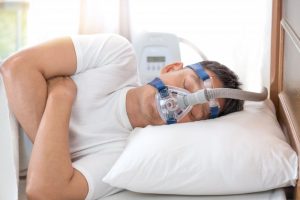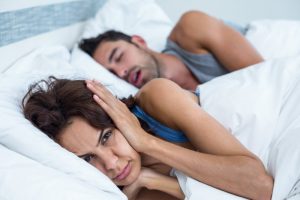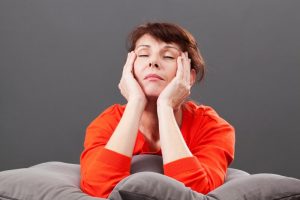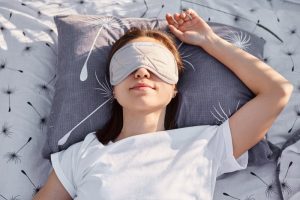Uncategorized
5 Tips for Cleaning an Oral Appliance
March 8, 2022

Having an oral appliance to treat your obstructive sleep apnea will allow you to feel what it’s like to feel well-rested again.
Of course, like any other device that spends a lot of time in your mouth, sleep apnea oral appliances need to be kept clean to avoid serious oral health problems down the road. Follow these 5 essential tips for excellent appliance hygiene.
(more…)The Most Common Sleep Apnea Treatments
February 17, 2022

It’s estimated that nearly 22 million Americans suffer from sleep apnea, with 80% of moderate-severe cases remaining undiagnosed. The most common form of sleep apnea is known as obstructive sleep apnea (OSA), which is characterized by a blockage or collapse of the airway, causing cessation of breathing for a short period of time during sleep. These cessations of breathing or “apneas” range from a few seconds up to several minutes and can occur up to 30 times per hour.
Common symptoms of sleep apnea include snoring, frequent breaks in breathing, daytime sleepiness or fatigue, morning headaches, insomnia, depression, frequent nighttime urination, acid reflux, and uncharacteristic irritability.
OSA negatively impacts both the quantity and quality of sleep that you get, putting you at a higher risk for experiencing negative events like a car crash or developing a potentially life-threatening condition, such as diabetes or heart disease. These risks make it very important that those with sleep apnea get treated for their condition.
(more…)The Ideal Bedtime for Heart Health
February 1, 2022

Our hearts are our lifelines—quite literally. The heart ensures that our bodies receive oxygen and other nutrients that we need in order to survive. Without the heart, our vital organs—including the brain—don’t receive blood, which will cause them to stop working.
According to the Centers for Disease Control and Prevention, heart disease is the leading cause of death in the United States, followed by cancer and COVID-19. When talking about heart disease, it’s important to understand that heart disease simply refers to several different heart conditions. The most common type of heart disease is CAD (coronary artery disease). CAD most typically leads to heart attacks.
(more…)The Connection Between Athletics and Sleep
January 19, 2022
All humans need sleep—it’s a biological necessity. Without appropriate and healthy sleep, we place ourselves at risk for developing potentially life-threatening health ailments, and worsening current conditions. Why? Because the body recovers during sleep. Without it, we miss out on vital processes that our bodies depend on.

Generally, it’s recommended that the average person receive 7-9 hours of sleep a night; but what if you’re not average? What if you consistently push your body to limits that the “average” person doesn’t? That’s what sports legend Lebron James does, and it’s why he sleeps an average of 12 hours each night.
In fact, many athletes are known to sleep many more hours a night than the average person—for example, Usain Bolt, Venus Williams, and Maria Sharapova sleep an average of ten. All are athletes who have accomplished incredible feats, and who therefore also need incredible sleep.
(more…)Thanksgiving Survival Tips For Snorers
November 16, 2021

Although it feels like 2021 just began, the year is officially winding down and Thanksgiving is right around the corner. Thankfully, many of us will once again be able to enjoy time with family, cooking and drinking, and reflecting on all that 2021 brought our way. For some of us, though, the holidays reignite a particular kind of anxiety: being the family snorer.
Examining the Link Between Hot Flashes and OSA in Women
October 20, 2021

Obstructive sleep apnea (OSA) is a condition that afflicts an estimated 22 million Americans and is generally believed to be vastly underdiagnosed in the general population. The difficulty in diagnosis originates in the fact that many of the condition’s symptoms can be misattributed to a number of ailments. In addition to this, the majority of general practitioners do not know how to properly screen for the condition—resulting in a weak first line of defense against the disorder.
For women, the situation is compounded by an all-too-common issue they experience when seeking medical care: their symptoms tend to deviate from the “classic” symptoms found in men. For example, chronic snoring, the most common tell-tale sign of sleep apnea, is frequently replaced by other sleep disruptions in women.
Thankfully, more and more studies are being published to enhance practitioners’ knowledge on how OSA reveals itself in, and impacts, women.
Does CBD Actually Help Sleep?
October 8, 2021

Cannabinoids are chemical compounds found in cannabis, which is a plant that’s commonly known as marijuana. From cannabis, we derive THC (tetrahydrocannabinol) and CBD (Cannabidiol).
While marijuana is still illegal in many states, cannabis derivates that contain less than 0.3% of THC (hemp) and CBD are legal and can be found in shops across the country. In fact, many people swear by CBD as a way to soothe health ailments—including poor sleep.
(more…)The Dangers of Suffering from Sleep Apnea Every Night
August 7, 2021

Every morning you wake up with a headache and a sore throat. Throughout the day you feel tired and irritable. Most concerning of all, you occasionally (or often) wake up during the night gasping for air. What’s going on?
If you experience any of the above symptoms, you could be suffering from a potentially life-threatening sleep disorder: sleep apnea. And as long as it goes untreated, you won’t be able to get a good night’s rest—and your health could suffer for it.
(more…)Sleep Disorders 101: Narcolepsy
July 16, 2021

Narcolepsy is a relatively rare and fairly mysterious neurological disorder that causes quick and unexplainable bouts of drowsiness and sleep. A condition that affects both genders and all age groups, between 135,000 to 200,000 individuals in the United States are thought to suffer from narcolepsy.
Untreated narcolepsy can impact nearly every aspect of an individual’s life: academic, work, social, psychological, and even cognitively. Unfortunately, it’s not uncommon for narcolepsy to be misdiagnosed as a psychiatric disorder, resulting in a sufferer receiving inadequate and misplaced care. This can lead to serious declines in a person’s mental and physical health, as they may feel ostracised from social life due to their disorder and not being properly supported or treated.
(more…)10 Tips for Improving Sleep in the Summer
June 1, 2021

June has arrived, signaling the beginning of summer. No matter your age, it’s likely that this time of year is spent taking advantage of the longer days and, for many of us, enjoying being near water, a cold drink in hand, with friends and family. On the flip side, us Texans know all too well just how hot summers can get—some even refer to the summertime as Texas’ winter, as many people lounge around inside, avoiding the sweltering heat. Though, it’s a fact that anyone who experiences a summer will know all too well that sleep and the heat are not friends. Frienemies, maybe, but certainly not compatible.
If you’re one of the many people who struggles to maintain restful sleep during the hotter months of the year … then we recommend you continue to read on! As you’ll soon learn, with a few mindful changes, you can find yourself waking up with the energy you need to take on the season each and every day. Follow these tips to help ensure a good night’s sleep no matter what summer throws our way!
(more…)